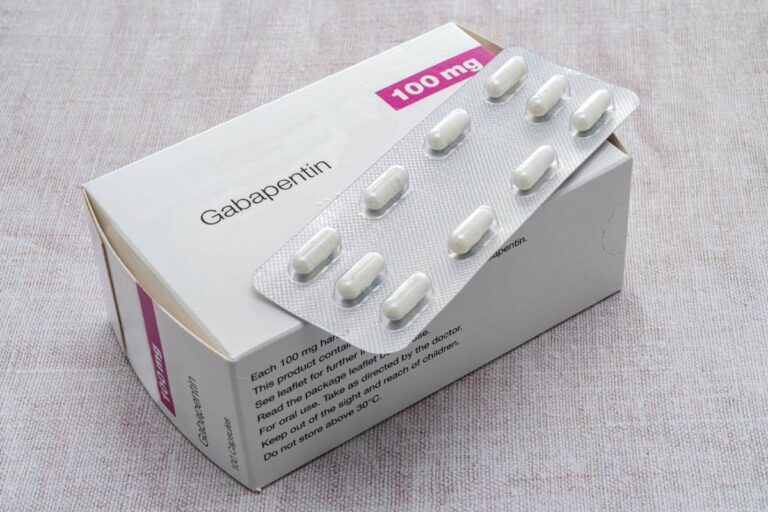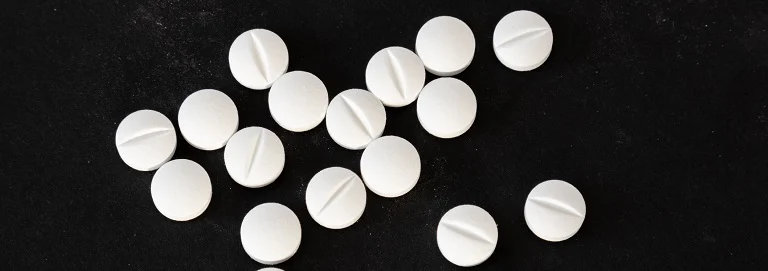Does Modafinil Improve Memory? What Science Really Says
Modafinil is a wakefulness medicine used for narcolepsy, obstructive sleep apnea, and shift work disorder. People also ask if it can improve memory. The short answer is that modafinil can help certain types of memory in some situations, but it is not a general memory booster and this use is not approved by the U.S. Food and Drug Administration (FDA) (FDA, 2015).
>> Looking to Buy Modafinil Online? Get it here for less than $1 per pill!
What is modafinil and what is it approved for
Modafinil is a central nervous system (CNS) stimulant with wakefulness-promoting effects. The FDA approves it for narcolepsy, obstructive sleep apnea (OSA), and shift work disorder (SWD). It is not approved for cognitive enhancement or memory improvement (FDA, 2015).
According to a clinical reference review, modafinil’s mechanism likely involves weak inhibition of dopamine reuptake with downstream effects on norepinephrine and serotonin, and possible actions on orexin and glutamate pathways (Greenblatt & Adams, 2023).
Does modafinil improve memory in healthy people
Evidence in healthy, well-rested adults shows selective benefits on some memory tasks, mainly when tasks are hard or monotonous.
- In a randomized, double-blind study of 60 healthy men, modafinil improved digit span, visual pattern recognition memory, and spatial planning. It did not help paired associates learning, spatial memory span, or rapid visual information processing. Effects were not clearly dose dependent (Turner et al., 2003).
- In a double-blind crossover study of 16 adults, a single 200 mg dose reduced errors during the long-delay part of a visuo-spatial task and during numeric manipulation. Gains were greater in lower-performing subjects, and there was no speed-accuracy trade-off (Müller et al., 2004).
Bottom line for healthy users: small, task-specific benefits are possible, especially under higher cognitive load. Modafinil does not improve all memory domains.
Does modafinil improve memory in clinical populations
Yes, results are stronger in some clinical groups.
- In a randomized, double-blind, placebo-controlled study of 60 patients with remitted depression, a single 200 mg dose improved episodic memory and working memory. Planning and sustained attention did not improve (Kaser et al., 2017).
What this means: people with residual cognitive symptoms may see more consistent memory benefits than healthy high performers.
How might modafinil affect memory
Modafinil likely acts through dopamine and norepinephrine in the prefrontal cortex, with possible involvement of orexin, histamine, and glutamate systems. These pathways support working memory and executive control, which may explain benefits on demanding tasks rather than across all memory types (Greenblatt & Adams, 2023).
Important limits and mixed findings
Not all studies show benefits, and some contexts show harm.
- An animal study found that acute modafinil impaired acquisition, consolidation, and retrieval of emotional memory in mice at moderate to high doses, suggesting dose and emotional context can flip effects from helpful to harmful (Fernandes et al., 2013).
- Human studies in healthy volunteers often report modest effects that appear under high load or among lower-performing participants, not across the board (Turner et al., 2003; Müller et al., 2004).
Safety, interactions, and who should avoid it
- Not an approved use: using modafinil to improve memory is off-label. Approved indications are narcolepsy, OSA, and SWD (FDA, 2015).
- Common side effects: headache, nausea, decreased appetite, anxiety, and insomnia (Greenblatt & Adams, 2023; FDA, 2015).
- Serious risks: rare but serious rash including Stevens–Johnson syndrome, and psychiatric symptoms such as agitation, mania, or hallucinations. Stop the drug and seek care if these occur (FDA, 2015).
- Drug interactions: modafinil can reduce the effectiveness of steroidal contraceptives. Use an alternative or backup method during treatment and for one month after stopping. It can also affect levels of drugs like cyclosporine and some CYP2C19 substrates (FDA, 2015).
- Special populations: caution in people with liver disease, cardiovascular disease, or psychiatric history. Pediatric use is not approved. Discuss risks with a clinician (FDA, 2015; Greenblatt & Adams, 2023).
Practical guidance if you are considering modafinil for cognition
- Talk to a clinician first. Discuss your goals, health history, and medications. This is a Your Money or Your Life topic that requires careful medical oversight.
- Set realistic expectations. Benefits, if any, are likely modest and task specific in healthy users. Clinical groups may benefit more on episodic and working memory tasks (Kaser et al., 2017).
- Use approved doses only. The typical adult dose for approved conditions is 200 mg once daily. Higher doses have not shown clear extra benefit and may raise risk (FDA, 2015).
- Monitor for side effects and interactions. Plan contraception accordingly and watch for rash or mood changes. Stop and seek care if serious symptoms occur (FDA, 2015).
Bottom line
Modafinil can improve certain types of memory, mainly working memory and episodic memory, when tasks are demanding or when people have underlying cognitive problems. It is not a blanket memory enhancer, and this use is off-label. Balance possible benefits against safety warnings and use it only with medical supervision (Turner et al., 2003; Müller et al., 2004; Kaser et al., 2017; FDA, 2015; Greenblatt & Adams, 2023).
FAQ
Can I take modafinil to study for exams
Modafinil may help on complex, sustained tasks, but effects are modest and task specific in healthy people. It does not improve all memory types, and use for studying is off-label. Consider sleep, exercise, and study habits first (Turner et al., 2003; Müller et al., 2004).
Does modafinil work better if I am sleep deprived
Modafinil promotes wakefulness, which can help performance under sleep loss, but this article focuses on memory. Even when awake, memory gains are not guaranteed and remain task specific (Greenblatt & Adams, 2023).
Is modafinil safe to combine with birth control pills
No. Modafinil can reduce the effectiveness of steroidal contraceptives. Use an alternative or backup method during treatment and for one month after stopping (FDA, 2015).
Can modafinil worsen memory
Possibly, in some contexts. An animal study found impaired emotional memory at higher doses, which suggests dose and context matter. Human data show mixed, task-specific effects rather than uniform improvement (Fernandes et al., 2013; Turner et al., 2003; Müller et al., 2004).
Disclaimer: This information is for educational purposes and does not replace medical advice. Talk to a qualified health professional before using modafinil for any purpose.
References
- U.S. Food and Drug Administration. (2015). PROVIGIL® (modafinil) tablets, for oral use, C-IV [Prescribing information]. U.S. Department of Health and Human Services. https://www.accessdata.fda.gov/drugsatfda_docs/label/2015/020717s037s038lbl.pdf
- Greenblatt, K., & Adams, N. (2023, February 6). Modafinil. In StatPearls [Internet]. StatPearls Publishing. https://www.ncbi.nlm.nih.gov/books/NBK531476/
- Kaser, M., Deakin, J. B., Michael, A., Zapata, C., Bansal, R., Ryan, D., Cormack, F., Rowe, J. B., & Sahakian, B. J. (2017). Modafinil improves episodic memory and working memory cognition in patients with remitted depression: A double-blind, randomized, placebo-controlled study. Biological Psychiatry: Cognitive Neuroscience and Neuroimaging, 2(2), 115–122. https://doi.org/10.1016/j.bpsc.2016.11.009
- Müller, U., Steffenhagen, N., Regenthal, R., & Bublak, P. (2004). Effects of modafinil on working memory processes in humans. Psychopharmacology (Berlin), 177(1–2), 161–169. https://doi.org/10.1007/s00213-004-1926-3
- Turner, D. C., Robbins, T. W., Clark, L., Aron, A. R., Dowson, J., & Sahakian, B. J. (2003). Cognitive enhancing effects of modafinil in healthy volunteers. Psychopharmacology, 165(3), 260–269. https://doi.org/10.1007/s00213-002-1250-8
- Fernandes, H. A., Zanin, K. A., Patti, C. L., Wuo-Silva, R., Carvalho, R. C., Fernandes-Santos, L., Bittencourt, L. R., Tufik, S., & Frussa-Filho, R. (2013). Inhibitory effects of modafinil on emotional memory in mice. Neuropharmacology, 64, 365–370. https://doi.org/10.1016/j.neuropharm.2012.06.058








